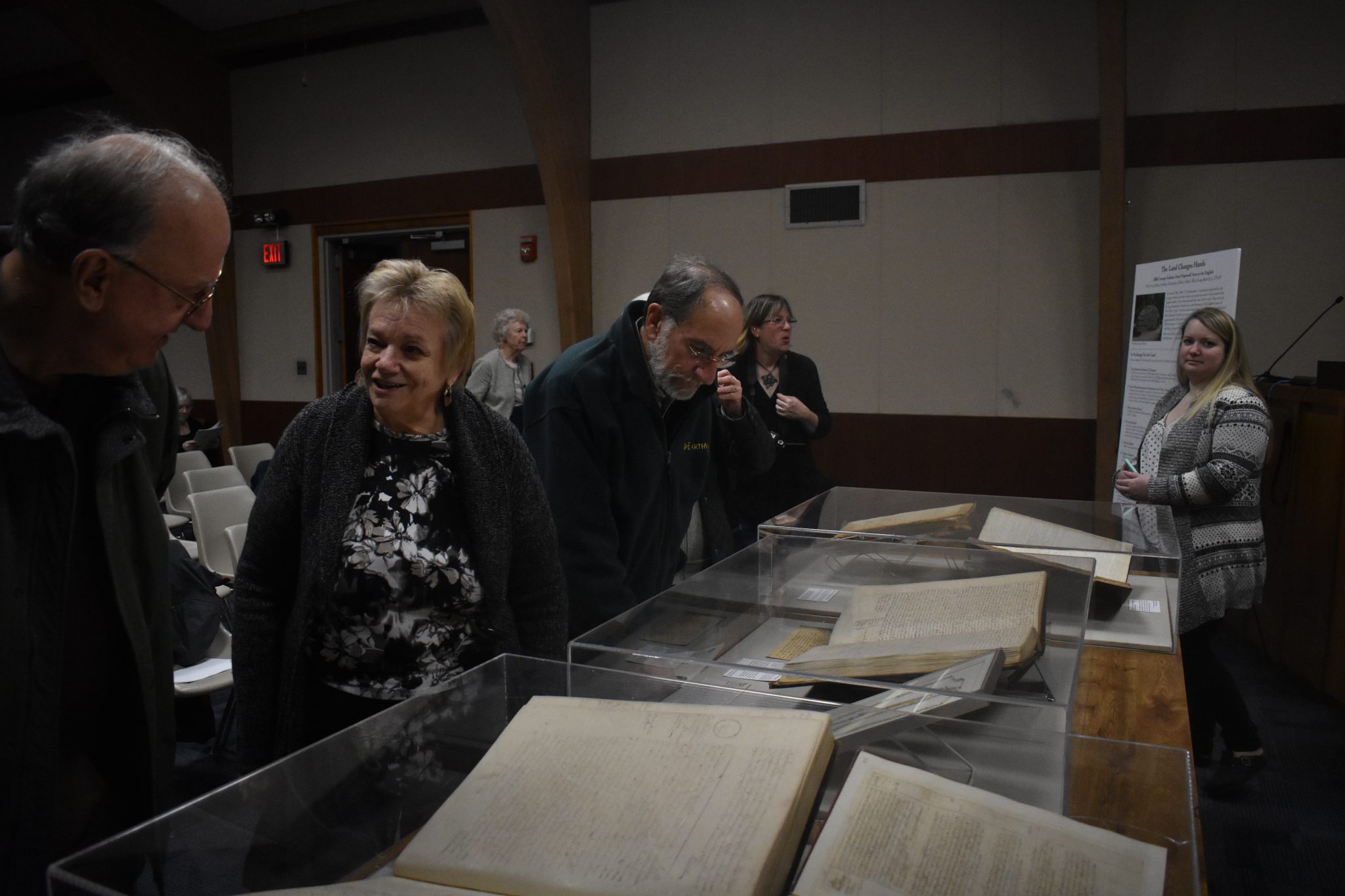As the new year continues, Hopewell Township officials and residents are celebrating the town’s 320th year by exploring its history.
The milestone was honored with a kickoff event at the Hopewell Township Municipal Complex in Hopewell on Feb. 23.
The event inside the complex’s auditorium was designed and created to explain the founding history of Hopewell Township, which was established in 1700.
Three local Hopewell Township historians would share their knowledge and research with residents and families in attendance, each displaying a specific piece of history on the township’s beginnings.
The historians leading the presentation were Ian Burrow an archaeologist and conservationist; Richard Hunter the current president of Hopewell Valley Historical Society; and Joseph Klett, president of The Hopewell Museum.
Burrow discussed the local Lenape Indians and how long they were in the Hopewell area before European settlers arrived.
“We know that the Indians lived here for a generation after English settlement came in. There was a lot of interaction going on between the settlers and the Indians for quite sometime,” he said. “Obviously, it is a sad story in a sense that the Indians could not stay here and they did leave. On the other hand, there was interaction and it was peaceful.”
Burrow talked about the artifacts that have been found from their time and currently; he also explained the 1688 deed, where the Indians transferred the land to Daniel Coxe (Governor of West New Jersey); and the trade items they received for the land.
“At least here there was some compensation for the land, which in some places did not happen at all. I do not think a lot of people are clear about it at all and are not aware of Indian descendants,” he said.
Hunter said with his speech he wanted to get people to look more closely at their surroundings and understand what they are looking at in town.
“When you look out of your car window and see a weird building or a road intersection, that you have a sense of its age and how it fits in to the town’s history. It is incredibly important that people understand the geography,” Hunter said. “Hopewell Township has parts of the township that are incredibly fertile and other parts that are extremely rocky and very hard to do anything with. There is a clear progression in farming history in town.”
Hunter’s discussion focused on the geography of the “valley” and how this determined the pattern of European settlement. He included landforms, rivers, soil fertility, and the evolution of roads.
Klett went on to explain the establishment of Hopewell Township, which had originally included Pennington Borough, Hopewell Borough, Ewing Township and much of Trenton.
“When it was originally established in the year of 1700, it was a much larger area than it is today. It is important for people to understand what they are celebrating,” he said. “They are celebrating the creation of a much larger area known as Hopewell and later on gets subdivided into different municipalities.”
Klett described the 1700 court book establishing the township, which came about after a group of settlers in this area petitioned the county court in Burlington for a new municipality.
He added information about Hopewell’s 1755 royal charter, which bestowed certain authority and privileges upon the local government.
Hopewell Township resident Edward Hujber attended the kickoff history celebration event because he is interested in local history.
“I am third generation in my family from Hopewell Township. I just had local interest in coming here today. There is a lot of history for the township and the town has maintained its identity for a very long time,” he said. “It is important for people to know how the town was established.”
Ruth Mortensen of Hopewell Township said that she loved archaeology and has lived in Hopewell Township since 1962.
“It is really fascinating to fallow all of this and learn even more. This town is a part of history,” she said. “This who area played a important role in the revolutionary war. To have this historical kickoff event is important for the young children to about how this township came to be.”

